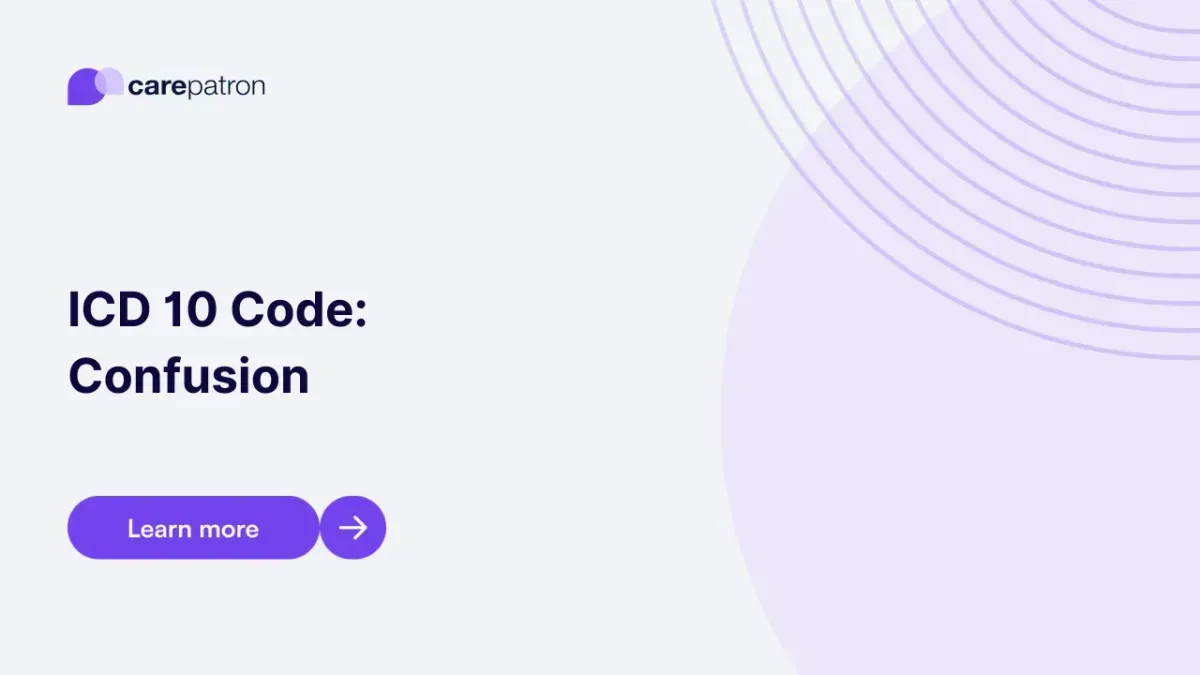
Confusion ICD-10-CM Codes
Explore the ICD codes for confusion. Understand the codes, billability, and clinical relevance of this cognitive disturbance often seen in clinical settings.
Use Code
Commonly asked questions
Various factors, including medical conditions like infections, metabolic disturbances, traumatic brain injury, drug or alcohol intoxication or even alcohol withdrawal syndrome like delirium tremens, and certain mental disorders, psychological conditions like mild cognitive impairment and neurologic neglect syndrome, can cause confusion. Aside from those, even age-related cognitive decline can cause confusion.
Treatment for confusion focuses on identifying and addressing the underlying cause. This might involve medications, hydration, or other specific interventions depending on the cause.
Confusion can be a symptom of a serious condition, especially if it occurs suddenly or is accompanied by other neurological symptoms. It's essential to seek medical evaluation from mental health professionals to determine the cause.
EHR and practice management software
Get started for free
*No credit card required
Free
$0/usd
Unlimited clients
Telehealth
1GB of storage
Client portal text
Automated billing and online payments
